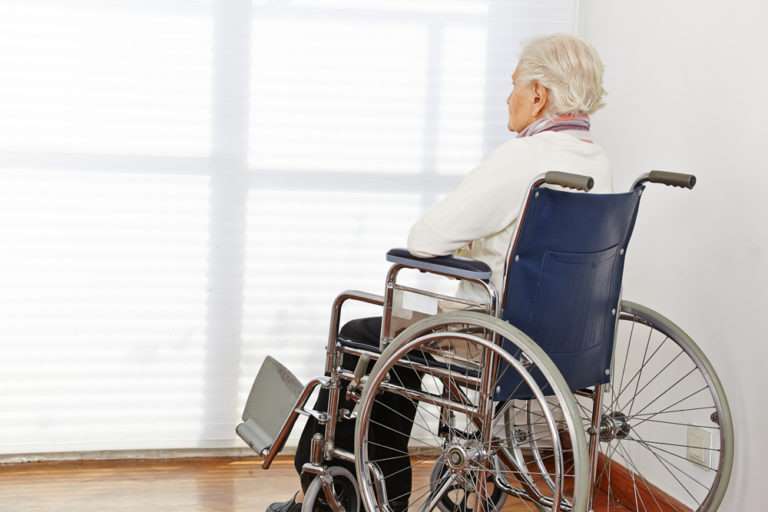
In theory, anyone who witnesses nursing home abuse or neglect can report nursing home abuse. In fact, we all have a moral duty to report the mistreatment of our elders in nursing homes. Persons reporting nursing home abuse could be:
- Relatives of the resident suffering abuse and neglect
- Nursing home employees
- Social workers
- Doctors
- Visitors to the nursing home
- Third-party vendors or contractors working in the nursing home
According to the Rape, Abuse & Incest National Network (RAINN), there are also mandatory reporting requirements that differ from one state to another. Typically, government employees, as well as those in the medical profession, are required by law to report nursing home abuse or suspected abuse. Some states require all persons to report suspected abuse and neglect to the authorities. When reporting nursing home abuse, giving as much detail and evidence as possible is important.
The Different Types of Nursing Home Abuse
Nursing home abuse can be difficult to detect, especially if it does not leave any physical signs on the body of the mistreated senior. In order to be able to detect and report nursing home abuse, it will be important to know the types and signs of abuse, which can include:
- Physical abuse and violence
- Sexual abuse
- Emotional abuse
- Verbal abuse
- General neglect
Signs that a senior is suffering from abuse can easily be missed or misinterpreted as a general decline in old age. Signs of abuse or neglect can include any of the following:
- Repeated and unexplained falls
- Unexplained fractures and dislocations
- Extensive bruising
- Bruised or bleeding genitals
- Torn and stained clothing
- Bedsores
- Frequent infections
- Rapid weight loss and hair loss
- New depression and anxiety
- Withdrawal from social activities
- Fear of caregivers
While not all of these signs confirm mistreatment, if you notice a recent change in your loved one, you may wish to dig deeper and alert the nursing home staff to your findings. A senior suffering from several of these signs and symptoms should raise some red flags.
If you see any signs of abuse, you should document them and keep track of dates and times. Having notes and photographs of injuries will not only make reporting easier but also help if you later want to seek damages.
How To Report Nursing Home Abuse
Reporting nursing home abuse can be anything but straightforward since the process varies from one state to another. Medicare.gov suggests that those who witness nursing home abuse or suspect mistreatment report their findings to the nursing home staff first of all. Nursing home employees who report abuse can include a supervisor or the director of nursing.
A good next step can be to find out about your state’s specific resources for reporting elder abuse, which can include:
- Your state’s ombudsman through the Administration for Community Living (ACL)
- Elder protection services
- Law enforcement
In some states, it is possible to report nursing home abuse anonymously or with confidentiality provisions. This can protect nursing home employees who fear retaliation or loss of their job if they report their place of employment.
You Could Have Legal Recourse
Nursing home abuse is a crime. If your loved one suffered injuries and damages, you do not have to stand for it and could potentially go after the nursing home. Laws such as The Nursing Home Reform Act are designed to protect nursing home residents from egregious mistreatment, according to the Department of Justice (DOJ). Seniors in skilled nursing home facilities have the legal right to be free from abuse and neglect.
Nursing homes can be negligent in various ways, including but not limited to:
- Understaffing
- Negligent hiring
- Lack of staff training
- Employing unqualified or underqualified staff
Proving negligence of a nursing home is not always easy, however, and can require compelling evidence as well as witness statements and expert witness opinion. However, a nursing home lawyer can help you seek justice for your relative’s mistreatment.
Consider Working with a Nursing Home Abuse Lawyer
Abuse in the nursing home is unethical, illegal, and should never happen. Our seniors should be able to live in dignity and without fear. They deserve to spend their twilight years receiving a good standard of care and attention. Unfortunately, when nursing homes take cost-cutting too far, they can end up putting profits before the physical and emotional health of their residents. This is unacceptable, and we are committed to helping families fight nursing home abuse.
If you want to find out more about reporting nursing home abuse and holding a nursing home to account, contact High Stakes Injury Law today. We can assess your case and determine any legal options that could be open to you. Call us now for a complimentary and confidential consultation by dialing (702) 605-6671.

